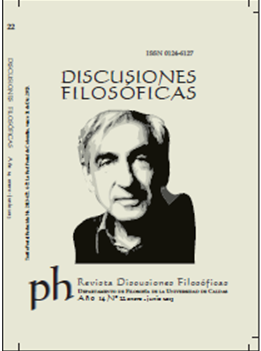Authors
Abstract
This article reflects on Habermas' conception of deliberative democracy. In this conception, it is considered that respect for constitutional principles and the monitoring of the institutionalized procedures of communication are the moral keys that would facilitate collective decision-making and the construction of plural political unit. In this sense, politics is highlighted as deliberation and cooperation among participants in a democratic process. Nonetheless, in deliberative democracy appears to be a political deficit by ignoring situations in which the rulers use the power of persuasive communication to enforce principles and interests that invade all aspects of the public sphere, and this take us to identify public administration as the center of the political scene and to gradually depoliticize collective decision making.
References
---. La democracia deliberativa. Barcelona: Gedisa, 2001. Impreso.
Gutmann, Amy and Thompson Dennis. Why deliberative democracy. Princeton: Princeton University Press, 2004. Print.
Habermas, Jürgen. La inclusión del otro: estudios de teoría política. Barcelona: Paidós, 1996. Impreso.
---. Facticidad y validez. Madrid: Editorial Trotta, 1998. Impreso.
---. Teoría de la acción comunicativa II. Madrid: Taurus, 2003. Impreso.
---. “Del uso pragmático, ético y moral de la razón práctica”. Aclaraciones a la ética del discurso. Madrid: Editorial Trotta, 2000. Impreso.

 PDF (Español)
PDF (Español)
 FLIP
FLIP

























